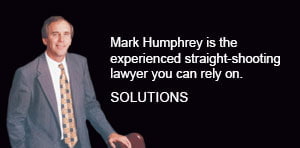


If insurance benefits are paid to a beneficiary who does not have an insurable interest, that beneficiary holds the proceeds for the benefit of those entitled by law to the proceeds according to a 1894, Texas Supreme Court opinion styled, Cheeves v. Anders. This proposition was upheld in a Tyler Court of Appeals opinion from 1998, styled, Stillwagoner v. Travelers Insurance Co. An insurer that knows of an adverse claim but pays the proceeds to someone without an insurable interest may be liable to the proper beneficiary or to the insured’s estate for the full amount of the benefits. While Texas law requires that the designated beneficiary have an insurable interest, it is not essential to the validity of the contract, and the insurance company may not raise the beneficiary’s lack of an insurable interest as a defense of payment. When an insurer issues a policy to someone without an insurable interest, the insurer must pay, and the law will decide who gets the proceeds. This is also from the Cheeves case and the Stillwagoner opinions. A number of courts have considered challenges to a beneficiary’s insurable interest, without directly addressing the issue whether the plaintiff had standing. In Tamez v. Certain Underwriters at Lloyd’s, a 1998, 14th District Court of Appeals opinion, the court reviewed these other decisions and held that the insured’s estate had standing to challenge the beneficiary’s right to the proceeds. The insurance company does not have standing per se to challenge a beneficiary’s right to the proceeds, because the insurance company has to pay the proceeds anyway. Instead, the insurance company may file an interpleader suit, pay the money into the registry of the court, and let the court decide who gets the proceeds. This process is held to be acceptable by a 1931 opinion styled, Wilke v. Finn. One other note on who may have an insurable interest is found in the 1979, Texas Supreme Court opinion, Empire Life Insurance Co. v. Moody, which says a tenant holding property or an estate during the life of another has an insurable interest in the latter’s life.
October 7, 2017 Updated: September 4, 2017 8:33 am Comments are closed. Contact Us Free Initial Consultation 972-263-3722 Office Hours Mon - Fri: 8am - 6pm Sat - Sun: By Appointment



This site is protected by reCAPTCHA and the Google Privacy Policy and Terms of Service apply.
Please do not include any confidential or sensitive information in a contact form, text message, or voicemail. The contact form sends information by non-encrypted email, which is not secure. Submitting a contact form, sending a text message, making a phone call, or leaving a voicemail does not create an attorney-client relationship.